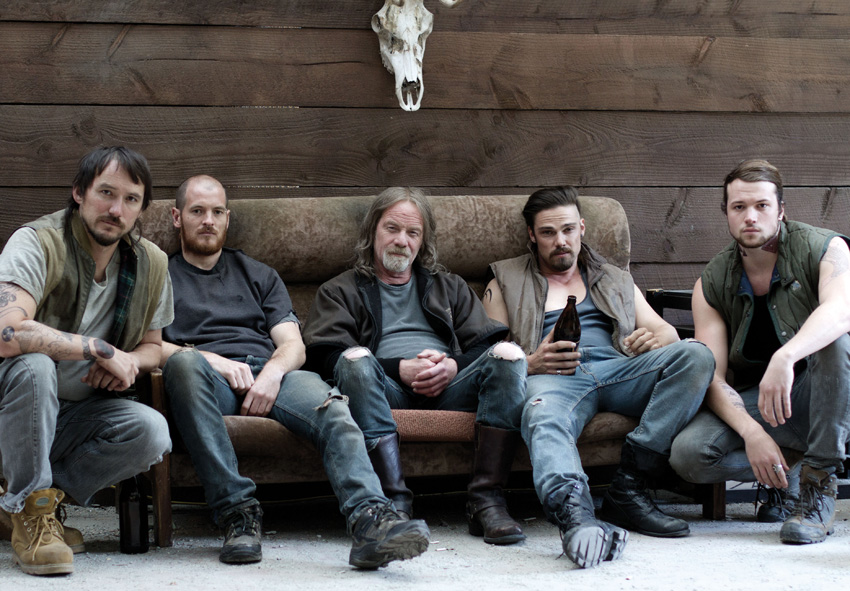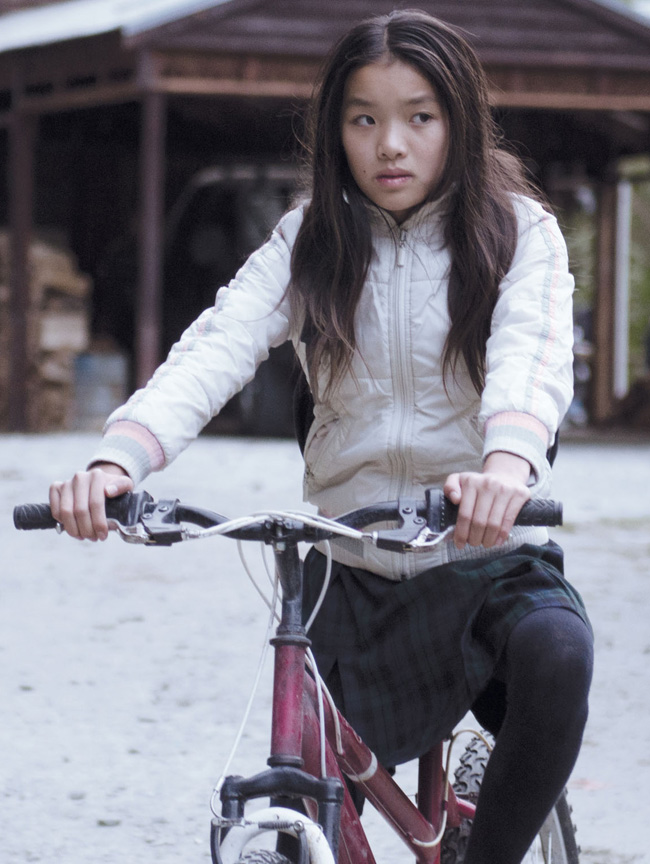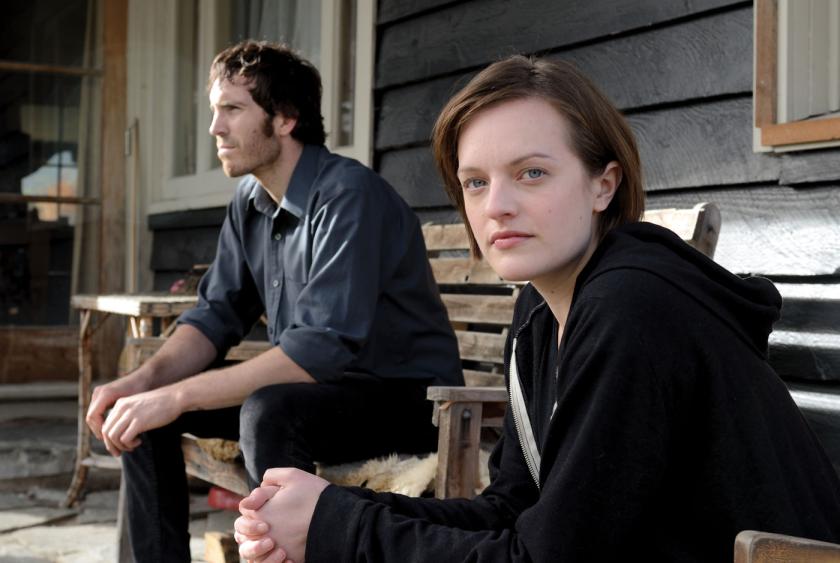Jane Campion's much-anticipated series is set amid hauntingly beautiful scenery on New Zealand's South Island, which in its remoteness seems to shake its head gently at the antics of the sparse human population. The people themselves are like a tribe that time forgot, living in a wilderness-bubble governed by the kind of attitudes you'd expect to find in some dust-devilled outpost of the Old West in about 1800.
If they weren't born there, they've come to escape. Thus, in an early sequence, a cluster of containers was delivered to a lakeside piece of land called (either ironically or not) Paradise, which would become the makeshift homes for GJ (Holly Hunter) and her group of abused and damaged women. GJ is a sort of glassy-eyed feminist shaman who is said to be "in a different mental state".
 Their arrival triggered bristing hackles on Matt Mitcham (Peter Mullan) and his sneering, menacing sons, who consider Paradise to be rightfully theirs, not least because Matt's mother was buried there (Peter Mullan at the centre of the Mitcham clan, pictured above). Their confrontation with GJ's women instantly established the story's pervading tone of sexual violence and antagonism (with one of the women yelling "fuck off, you alpha ass" at Mullan's treating back), and the disappearance of Mitcham's 12-year-old daughter Tui supplies the tin-opener for this very particular can of worms.
Their arrival triggered bristing hackles on Matt Mitcham (Peter Mullan) and his sneering, menacing sons, who consider Paradise to be rightfully theirs, not least because Matt's mother was buried there (Peter Mullan at the centre of the Mitcham clan, pictured above). Their confrontation with GJ's women instantly established the story's pervading tone of sexual violence and antagonism (with one of the women yelling "fuck off, you alpha ass" at Mullan's treating back), and the disappearance of Mitcham's 12-year-old daughter Tui supplies the tin-opener for this very particular can of worms.
It's fortuitous that Detective Robin Griffin (Elisabeth Moss) happens to be staying locally when the Tui case crosses the police radar, having come back to visit her mother, who's battling cancer. Equally serendipitously, Griffin is a specialist in cases of sexual assault (there's an impression that crimes under that heading have never previously been acknowledged in this neighbourhood). The discovery that Tui (Jacqueline Joe, pictured below), who had been narrowly prevented from drowning herself in the lake, was five months pregnant instantly put Griffin on red alert. When Tui then vanished, Griffin was off on the trail like a turbocharged bloodhound. What she's going to find is unlikely to be pretty.
 One aspect of Griffin's character is the way she represents a slender chink of light from the wider world, where the legal infrastructure functions fairly smoothly and citizens generally don't behave like heavily-armed survivalists, the menfollk in the vicinity of Paradise all being tooled up like a volunteer SWAT team. She also functions, somewhat clunkily it must be said, as a lightning rod for chauvinist bigotry and macho posturing. Every time she goes to the local police station or into a bar she seems to trigger outbursts of sexist epithets and anti-lesbian jokes that Paleolithic Man might have considered regressive. Al (David Wenham), the local chief of detectives, seems to exude an air of relative sophistication, but we have grounds to suspect that it could all be an act.
One aspect of Griffin's character is the way she represents a slender chink of light from the wider world, where the legal infrastructure functions fairly smoothly and citizens generally don't behave like heavily-armed survivalists, the menfollk in the vicinity of Paradise all being tooled up like a volunteer SWAT team. She also functions, somewhat clunkily it must be said, as a lightning rod for chauvinist bigotry and macho posturing. Every time she goes to the local police station or into a bar she seems to trigger outbursts of sexist epithets and anti-lesbian jokes that Paleolithic Man might have considered regressive. Al (David Wenham), the local chief of detectives, seems to exude an air of relative sophistication, but we have grounds to suspect that it could all be an act.
Ironically, it may be Matt Mitcham who's going to prove the most interesting and complex character, though almost the first thing we saw him do was drown the estate agent who'd sold the Paradise property. He's harsh, angry and intimidating, yet seems to feel a ferocious emotional bond with missing Tui, and Mullan brilliantly projects his rampaging force of character. This will be a bumpy ride.















Add comment